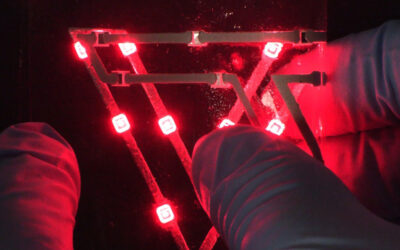The Semiconductor Research Corporation (SRC) and the Defense Advanced Research Projects Agency (DARPA) have announced that $194 million will be dedicated during the next five years to six new university microelectronics research centers to support the continued growth and leadership of the U.S. semiconductor industry.
The Semiconductor Technology Advanced Research network (STARnet) includes:
- the Center for Future Architectures Research (C-FAR) at the University of Michigan;
- the Center for Spintronic Materials, Interfaces and Novel Architectures (C-SPIN) at the University of Minnesota;
- the Center for Function Accelerated nanoMaterial Engineering (FAME) at the University of California, Los Angeles;
- the Center for Low Energy Systems Technology (LEAST) at the University of Notre Dame;
- the Center for Systems on Nanoscale Information fabriCs (SONIC) at the University of Illinois at Urbana-Champaign; and
- the TerraSwarm Research Center at the University of California, Berkeley.
“STARnet is a collaborative network of stellar university research centers whose goal is to enable the continued pace of growth of the microelectronics industry, unconstrained by the daunting list of fundamental physical limits that threaten,” said Gilroy Vandentop, the new SRC program executive director.
Funded by the DARPA as part of the Department of Defense and U.S. semiconductor and supplier industries as a public-private partnership, STARnet projects help maintain U.S. leadership in semiconductor technology vital to U.S. prosperity, security and intelligence. Annually, $40 million is dedicated to the program, with each center receiving about $6 million.
SRC, the world’s leading university-research consortium for semiconductors and related technologies, administers the STARnet program. Industry partners include Applied Materials, GLOBALFOUNDRIES, IBM, Intel Corporation, Micron Technology, Raytheon, Texas Instruments and United Technologies.
















